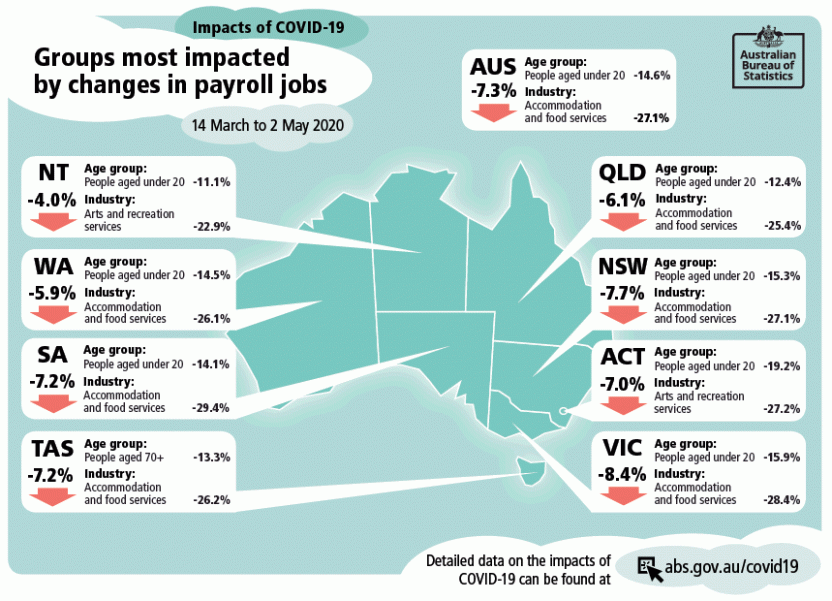Over the seven weeks from mid-March to early May, total payroll jobs fell by 7.3 per cent, according to new data released by the Australian Bureau of Statistics today.
Head of Labour Statistics at the ABS, Bjorn Jarvis, said: “The latest data shows a further slowing in the fall in COVID-19 job losses between mid-April and early May.”
“The largest net job losses over the seven weeks of the COVID-19 period, in percentage terms, were in Victoria and New South Wales, where the falls in payroll jobs were around 8.4 per cent and 7.7 per cent."
“Payroll jobs worked by people under 20 continued to show the largest falls (-14.6 per cent), and were particularly high in some states and territories, such as the Australian Capital Territory (-19.2 per cent).”
In addition to the fall in total jobs slowing, some industries were now showing a reduced impact in the most recent weeks.
“The Accommodation and food services industry had lost around a third of payroll jobs (33.3 per cent) by the week ending 11 April, and a subsequent increase in jobs saw this reduce to around 27.1 per cent by the week ending 2 May,” Mr Jarvis said.
Groups most impacted by changes in payroll jobs between 14 March and 2 May, by state and territory
Image

“The week-to-week changes are much smaller than they were early in the COVID-19 period. The decrease in the number of jobs in the week ending 2 May was 1.1 per cent, which was only slightly larger than the 0.9 per cent increase in the week ending 25 April,” Mr Jarvis said.
Today's release also includes, for the first time, information at a regional level (Statistical Area Level 4) and information for each of the industry sub-divisions.
Further information is available in Weekly Payroll Jobs and Wages in Australia (cat. no. 6160.0.55.001).
The ABS would like to acknowledge the continued support from the Australian Taxation Office in enabling the ABS to produce these statistics, providing weekly insights into the Australian labour market.